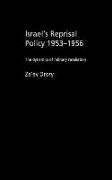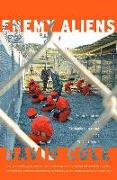Israel's Reprisal Policy, 1953-1956
BücherAngebote / Angebote:
Following Israel's War of Independence in 1948-49, the anticipated peace did not materialize and the new nation soon found itself embroiled in protracted military conflict with neighboring Arab states. Demobilization of its armed forces led to the formation of special elite unit under the command of Ariel Sharon to cope with cross-border infiltration, pillage and murder. A policy of deterrence was governed by the tactic of retaliation, which contained the seeds of escalation. At the same time, a military dynamic unfolded in which the logic of field unit response dictated both military and political policy and caught the imagination of a demoralized and war-weary Israeli society. This book methodically examines the train of retaliatory actions conducted by the Israel Defense Forces, the clashing orientations among Israeli political leadership towards the deteriorating military situation, the impact of massive immigration upon the social military fabric, and the restructuring of the Israeli army within the conceptual confines of field unit reprisal actions. A connected narrative of these actions provides case study illumination of the theoretical premises of study, namely the determination of security policy from below and the interaction between agency and structure in a military setting. The myth of the Israeli paratroopers at the beginning of the 1950s, and their heroic deeds in the reprisal raids, embodied the new Zionist ethos for which the current Prime Minister of Israel, Ariel Sharon, claims much of the credit. The book thus provides historical insight into some of the most intractable developments of the current Arab-Israel conflict.
Folgt in ca. 15 Arbeitstagen




